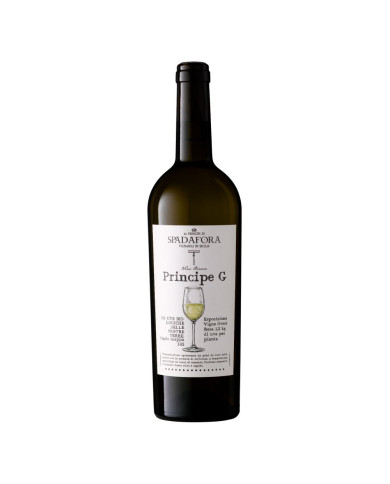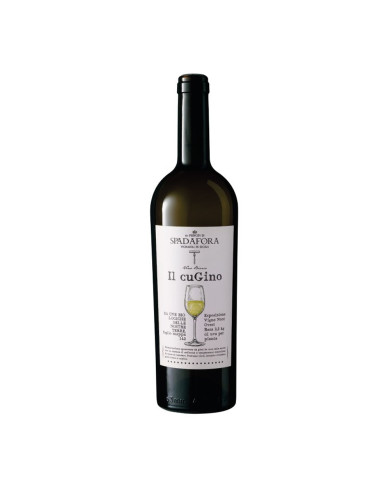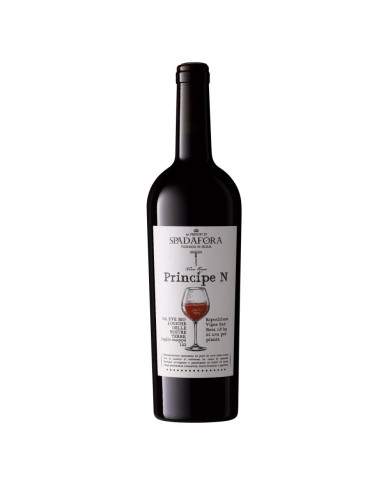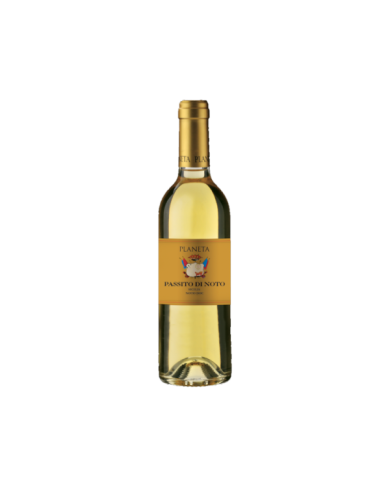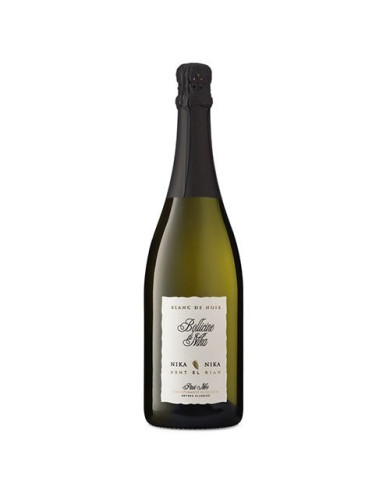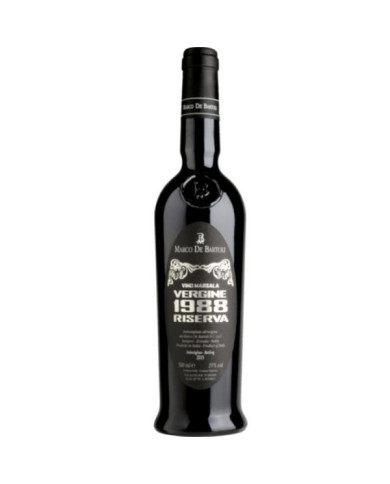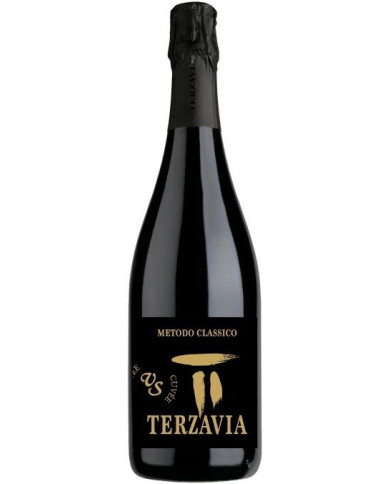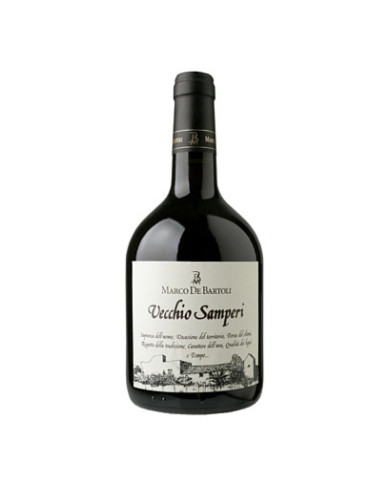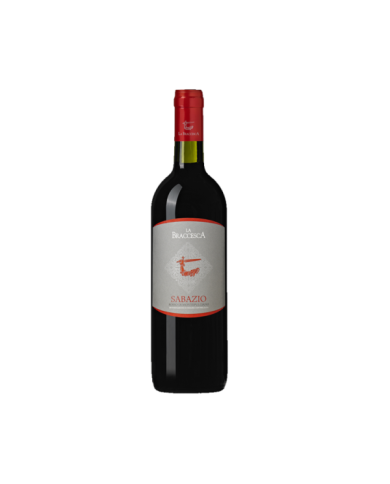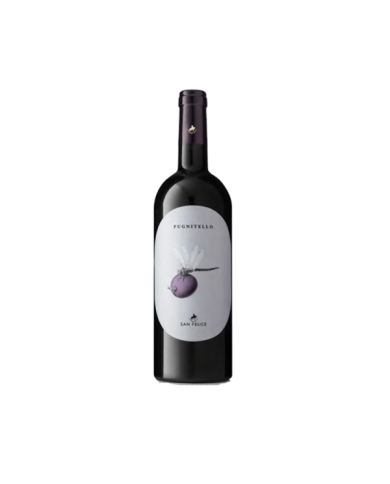SKU: 15676
Brand: Dei Principi di Spadafora
It is a fresh and elegant wine, with a superior structure to the white Don Pietro, included in the Don Pietro line. 7,000 bottles come out.
SKU: 15672
Brand: Dei Principi di Spadafora
Still and dry red wine, vinified with 100% Nero d'Avola grapes, with a pleasant scent of wild berries with pleasant vegetal sensations, a long aromatic persistence and soft tannins.
SKU: 2589
Brand: Planeta
From one of the oldest vines in the world, Moscato Bianco, our Passito di Noto is born. Passito is an ancient wine that becomes current with a modern drying system. Explosive aromas of exotic fruit, jasmine, candied citrus, it is both complex and easy to love. The ideal companion of the great Sicilian tradition of sweets and ice cream.
SKU: N/A
Brand: Nika
Il Passito di Pantelleria DOC "Nikà Nikà" dell'azienda Nika Nika è prodotto esclusivamente con uve di zibibbo, un’antica varietà di origine egiziana conosciuta anche come moscato d’Alessandria o moscatellone e introdotta in Sicilia dagli arabi. Sull’isola di Pantelleria lo zibibbo esprime, da sempre, le sue migliori qualità, regalando bacche grandi e dolci, dall'intenso bouquet. Le uve di zibibbo, vendemmiate a mano e appassite al sole per circa cinque settimane, vengono poi pigiate, diraspate e poste a macerare insieme al mosto in fermentazione del raccolto di Settembre, processo che favorisce la cessione dei profumi, degli zuccheri e dei precursori aromatici e che dona al "Nikà Nikà" una fragranza e una mineralità davvero peculiari.
SKU: N/A
Brand: Nika
Dorato, dal perlage fine e persistente, è uno spumante secco, elegante e complesso, caratterizzato da una grande freschezza e da sentori dominanti di crosta di pane, noci, frutta secca e delicate note floreali. Finale lungo.
SKU: 20941
Brand: Marco De Bartoli
Le uve hanno una resa bassissima, prodotto mediante il Metodo Solera, invecchiamento in fusti di Rovere e Castagno, per 40 anni.
SKU: 20940
Brand: Marco De Bartoli
Labirintico e grintoso, il Marsala Superiore Riserva DOC 1987 di Marco De Bartoli ha riposato per oltre venti anni in fusti di rovere di diversa grandezza. Prodotto con uve grillo vinificate in purezza, non solo regala le espressioni classiche proprie del Marsala, ma aggiunge sul piatto sensazioni intense e rare, proprie della media dinvecchiamento e derivanti dallaggiunta della mistella che risale, appunto, al 1987. Fantastico.
SKU: 20939
Brand: Marco De Bartoli
Una Riserva controversa, con cui Marco de Bortoli ha sempre avuto un rapporto difficile. Questo perché, secondo Marco, l’unico Marsala che poteva vantarsi della dicitura “Vergine” era il Vecchio Samperi, prodotto ottenuto senza aggiunta di alcool. Nonostante ciò però, Marco, nel 1988, volle cimentarsi con tale denominazione, dedicandosi a questa Riserva Marsala Vergine, unica annata mai commercializzata dall’azienda per questa tipologia. Le uve di grillo da cui nasce, crescono in vigneti pianeggianti, caratterizzati da un sottosuolo calcareo-sabbioso. Gli acini, una volta selezionati, fermentano in tradizionali fusti di rovere, e la fortificazione avviene aggiungendo solamente acquavite ottenuta da uve della stessa annata. L’affinamento, durato ben 27 anni, è stato svolto in fusti di castagno e di rovere di diversa capacità. Un’opera unica da non perdersi per niente al mondo!
SKU: 20927
Brand: Marco De Bartoli
La “terza via”, la sintesi tra due mondi e l’incontro tra due visioni, una versione che rappresenta la tradizione di un territorio in evoluzione, esaltando caratteri fino ad oggi inesplorati. Tradizione francese e spiccata personalità̀ siciliana. Una varietà, quella del Grillo, che continua a stupire per la sua poliedricità e forza, in questa “Terzavia” al sapore di Vecchio Samperi capace di comunicare una terra fortemente vocata ai grandi vini
SKU: 20925
Brand: Marco De Bartoli
Come e quando il Vecchio Samperi. Da non relegare alla fine del pasto, da abbinare anzi a formaggi stagionati, a carni brasate, rombo al forno, bottarga e ostriche. A temperatura ambiente o leggermente freddo, interessante e sorprendente come aperitivo.
Discover the secrets of Sicilian wines: A journey through the winemaking tradition of Southern Italy
Sicily is one of the richest regions of Italy both for its history and for its winemaking tradition. Sicilian wines are among the most appreciated in the world and are famous for their quality. In this article we will discover what the secrets of these delicacies are and how to enjoy them to the fullest.
Sicilian Wines: An ancient and rich history
The tradition of wine production in Sicily dates back to the Greco-Roman period, when the island was rich in native varieties. Over the centuries, the production of Sicilian wines has remained at the heart of the region's culture and economy. Today, Sicilian wines are famous all over the world for their unique quality.
Sicilian wines: variety and characteristics
There are numerous varieties of Sicilian wines. The most famous are Nero d'Avola, Nerello Mascalese, Frappato and Grecanico. These wines are characterized by a great aromatic complexity: hints of red fruits, spices, flowers and vanilla. Nero d'Avola is an intense, full-bodied red wine, while Nerello Mascalese is lighter and fruitier. Frappato is a light and aromatic rosé wine, while Grecanico is a fresh and fruity white wine.
How to choose the right wine
Choosing the right wine comes down to personal preferences and the occasion. For example, if you want to drink a high quality red wine, then you should opt for a Nero d'Avola. If you want a lighter and fruitier wine, you can choose a Nerello Mascalese. For a white wine, Grecanico is a great choice.
How to serve a Sicilian wine
To enjoy a Sicilian wine to the fullest, it must be served at a temperature of 18-20°C. It is advisable to serve red wines in fairly large glasses, with a wider base and a narrower top. White wines, on the other hand, are served in smaller glasses with a narrower base and wider top.
The right combination
Each wine has its own ideal pairing. For example, Nero d'Avola is a very versatile wine and goes well with meat-based dishes, such as grilled steak for example. Nerello Mascalese, on the other hand, goes best with fish or vegetable dishes. Frappato is a wine that goes well with lighter dishes, such as a mixed salad. Grecanico is a wine that goes well with fish or vegetable dishes.
5 tips for Sicilian wines
1. Choose a quality wine. Sicily is full of excellent quality wines, so choose a product from a reliable producer.
2. Taste more wines. Taste multiple Sicilian wines to find out which one you like best.
3. Store wine well. Store Sicilian wines in a cool, dry place away from heat sources.
4. Choose a right match. Pair Sicilian wines with the right dishes to get a unique taste experience.
5. Don't be shy. Don't hesitate to drink Sicilian wine and experiment with new varieties.
Discovering the secrets of Sicilian wines is a unique experience. Sicily is one of the richest regions of Italy and Sicilian wines are among the finest in the world. In this article we have explored the history of these wines, their characteristics, how to choose and serve a Sicilian wine and how to pair it with the right dishes. By following these tips you will be able to enjoy these delicacies to the fullest and discover the secrets of Sicilian wines.
Denomination Wines of Sicily
Sicily is a region famous all over the world for its wine production. Thanks to the Mediterranean climate, the presence of volcanoes and the richness of the soil, the island is able to produce some of the most appreciated wines in the world. In this article we will explore the main denominations of Sicilian wines, their vines and their organoleptic characteristics, to discover the excellence of Sicilian wine production.
Introduction to wine production in Sicily
The production of wine in Sicily has very ancient roots, dating back to Greek and Roman times. The region boasts a great variety of soils, from the volcanoes of Etna and the Aeolian Islands to the hills of the hinterland, which allow for the cultivation of numerous native and international vines. Thanks to the use of innovative techniques and attention to quality, Sicilian wine production is constantly growing, offering the market high quality wines, capable of satisfying every palate.
The main denominations of Sicilian wines
The denominations of wines of Sicily are divided into four main categories: Denomination of Controlled Origin (DOC), Denomination of Controlled and Guaranteed Origin (DOCG), Typical Geographical Indication (IGT) and Table Wines. Let's see in detail the characteristics of each one.
Denomination of Controlled Origin (DOC)
The denomination of controlled origin (DOC) is a quality mark that is assigned to wines that meet specific production criteria. In Sicily there are 23 DOCs, among which Cerasuolo di Vittoria, Moscato di Pantelleria and Etna Rosso stand out.
Cerasuolo di Vittoria
Cerasuolo di Vittoria is a red wine produced in the south-eastern part of the island, in the province of Ragusa. The wine is produced with grapes from the Nero d'Avola and Frappato vine, in variable percentages, and has an intense ruby red colour, a fruity aroma and a dry and soft flavour. It goes perfectly with red meats, cured meats and aged cheeses.
Muscat of Pantelleria
Moscato di Pantelleria is a sweet wine produced on the island of Pantelleria, located southwest of Sicily. The wine is produced with grapes from the Moscato di Alessandria vine, locally called Zibibbo, and has an intense golden yellow colour, an intense and aromatic bouquet and a sweet and soft flavour. It goes perfectly with sweets and desserts.
Etna Red
Etna Rosso is a red wine produced on the slopes of Etna, the highest active volcano in Europe. This wine is mainly produced with grapes from the native Nerello Mascalese vine, which grows on volcanic and high altitude soils.
What is Sicily's most famous wine?
A: Sicily's most famous wine is Etna Rosso, a red wine produced on the slopes of Etna.
Denomination of Controlled and Guaranteed Origin (DOCG)
The denomination of controlled and guaranteed origin (DOCG) is the maximum expression of the quality of Italian wines. In Sicily there is only one DOCG, the Cerasuolo di Vittoria. This dry red wine is produced in the Vittoria area, in the province of Ragusa, with grapes of the Nero d'Avola and Frappato vine in variable percentages. The wine has a ruby red colour, a fruity aroma and a soft and persistent flavour. It goes perfectly with red meats, cured meats and aged cheeses.
Typical Geographical Indication (IGT)
The Typical Geographical Indication (IGT) identifies wines produced in a specific geographical area and which have some typical characteristics. In Sicily there are four IGTs: Terre Siciliane, Salina, Val di Mazara and Alcamo. IGT wines can be produced with international grape varieties, such as Chardonnay, Cabernet Sauvignon and Merlot, but also with native varieties.
Table wines
Table wines are wines produced in Sicily that do not fall into the DOC, DOCG or IGT categories. Despite this, many of them are of the highest quality, produced with native grapes and according to traditional methods. Among the best known are Nero d'Avola and Grillo.
Sicily is a region with a great winemaking tradition, which has been appreciated all over the world for the quality of its wines. Thanks to the presence of volcanoes, the Mediterranean climate and the variety of the terrain, the island is able to produce wines of the highest quality, capable of satisfying every palate. From DOC to IGT, from white wines to red wines, Sicilian wine production is a real winemaking excellence.
FAQs
What are the native vines of Sicily?
Among the main native vines of Sicily are Nero d'Avola, Frappato, Inzolia, Grillo and Zibibbo.
How many DOC wines are there in Sicily?
In Sicily there are 23 DOC wines.
What are the main pairings of Sicilian wines?
The red wines of Sicily go perfectly with red meats, cured meats and aged cheeses, while the white wines are ideal with fish dishes, seafood and fresh cheeses.
What is the difference between DOC and DOCG?
The main difference between DOC and DOCG is that DOCG guarantees a superior quality of wine, with even stricter production criteria and more frequent controls.
What are the best known wines of Sicily?
Among the best known wines of Sicily are Etna Rosso, Cerasuolo di Vittoria, Nero d'Avola and Grillo.

